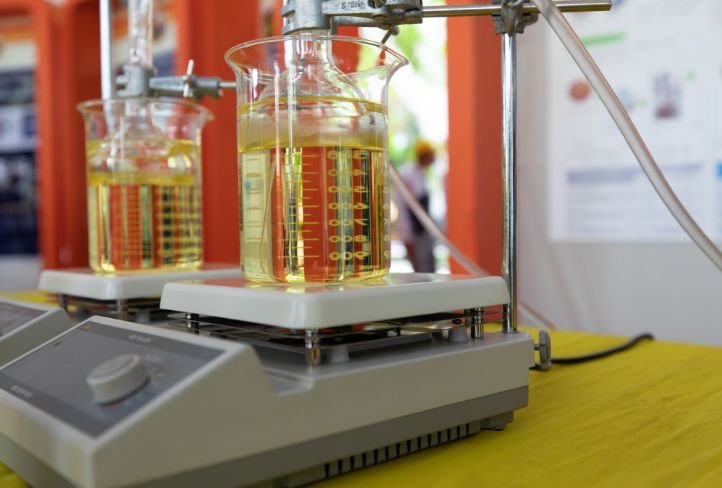
Celebrating Earth Day
Celebrating Earth Day A History and the Benefits of Recycling Used Cooking Oil into Biodiesel Earth Day, observed annually on April 22nd, is a global

Used cooking oil, often considered a waste product in commercial kitchens and restaurants, is now a valuable resource in the production of biodiesel. The process begins with the collection of used cooking oil, which is then transported to a recycling facility. At American Bio Source, we pride ourselves on recycling 100% of all used cooking oil collected, ensuring that no drop goes to waste.
The used cooking oil undergoes several stages of purification to remove impurities and contaminants. This includes filtration and centrifugation, which help in separating solid particles and water from the oil. The cleaned oil is then subjected to a chemical process called transesterification. In this step, the oil is mixed with an alcohol (usually methanol) and a catalyst (such as sodium hydroxide) to produce biodiesel and glycerin as a byproduct.
The biodiesel is then further refined to meet industry standards and quality specifications before it can be used as a fuel. American Bio Source ensures that the biodiesel produced meets the highest standards of purity and performance, making it a reliable and eco-friendly alternative to traditional fossil fuels.
Using B100 can reduce carbon dioxide emissions by 74% compared to petroleum diesel, significantly lowering the environmental impact.
The U.S. biodiesel and renewable diesel industry supports 75,200 U.S. jobs, pays $3.6 billion in annual wages, and generates substantial economic activity.
Non-toxic, biodegradable, with ultra-low sulfur, 0% aromatics, and environmentally friendly properties.
Biodiesel is a renewable, biodegradable, and clean-burning fuel for diesel engines, offering a sustainable alternative to petroleum diesel. It reduces greenhouse gas emissions and fossil fuel dependence. Its applications include transportation, heating, power generation, and agricultural machinery, supporting a diverse range of industries and contributing to environmental conservation and energy security. By embracing biodiesel, we move towards a greener, more sustainable future.
One of the key benefits is its lower carbon footprint compared to traditional fuels. Utilizing this alternative can drastically cut down on greenhouse gas emissions, particularly CO2 and sulfur. This leads to cleaner air, a healthier environment, and helps combat climate change, contributing to global ecological balance.
The fuel blends seamlessly with existing diesel engines, eliminating the need for modifications. It boasts a higher cetane number than petroleum diesel, enhancing engine performance and smoothness. Additionally, it serves as a natural lubricant, prolonging the lifespan of engine components.

Production utilizes local resources, like used cooking oil collected by American Bio Source, reducing dependence on imported oil. This supports energy independence and strengthens local economies by creating jobs in the industry and related sectors.
In case of spills or leaks, this fuel poses minimal environmental risk due to its biodegradability. It breaks down faster than petroleum diesel, reducing long-term damage potential. Additionally, it has a higher flash point, enhancing safety in handling, storage, and transportation.

Celebrating Earth Day A History and the Benefits of Recycling Used Cooking Oil into Biodiesel Earth Day, observed annually on April 22nd, is a global

Safeguarding Your Restaurant’s Pipes The Vital Role of Recycling Used Cooking Oil In the bustling world of restaurant ownership, your pipes often remain unnoticed, silently

